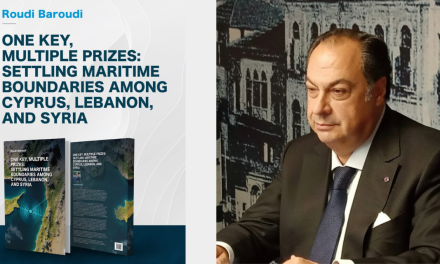In August 1982, Mother Theresa boarded a ferry in Cyprus for Lebanon. The airport had been closed as Israeli forces bombarded Beirut, then headquarters of the Palestine Liberation Organization, in a fierce battle to expunge Palestinian guerrillas and their armed allies. The city had already witnessed the devastation of civil war and a succession of peace accords had failed.
The only way into Lebanon at the time was through the Christian port of Jounieh. Mother Theresa and her entourage boarded the ship in Larnaca for the overnight journey, a risky endeavor through an Israeli naval blockade to prevent weapons from reaching the guerrillas. It was a last-minute mission she embarked on to rescue orphan children who had been abandoned at a Palestinian refugee camp. There were no luxury cabins or any accommodation to speak of on board and Mother Theresa slept on deck. As the ship left the harbor, she knelt down and began to pray, her white habit visible in the moonlit sky. For the other passengers, it was a comforting sight because even then, the Catholic nun was considered a living saint.
On arrival in Beirut, she managed to negotiate a ceasefire in order to cross from east to west. Arriving at the orphanage, she ignored the stench emanating from the building, where the mentally and physically disabled children had been abandoned without means to feed or wash themselves. She scooped up the children one by one to a convoy of cars and headed east to a house where the Missionaries of Charity she had founded in 1950 were waiting to receive them.
In another part of town, in the hills of Baabda, a US diplomat was busy trying to negotiate a peace deal that would allow for the evacuation of PLO leader Yasser Arafat and his guerrillas. The diplomat was the late Philip Habib, the highly respected, Lebanese-born foreign service officer, who had been brought out of retirement by President Ronald Reagan for the special assignment. Habib had been involved in the Vietnam peace talks in Paris and was fond of recounting how he used to dodge journalists by switching cars.
Mother Theresa was by then exhausted and could not face the return journey by ferry. The film crew accompanying her was documenting her life and wanted to relay a message to Habib. They asked a journalist who had managed to secure an invitation to dinner with Habib at the US ambassador’s residence whether there was room on the helicopter he was using to shuttle in and out of Beirut. His answer was that he would be happy to take her along if she was ready to leave when he was.
What followed was the horror of the Sabra and Shatila refugee camp massacre, the death of an elected Lebanese president and more internecine fighting amongst the various Lebanese armed factions. Arafat and his fighters returned only to be forced out by Syrian forces a year later. The three main protagonists of this interlude in history are long gone but the Palestinian-Israeli conflict remains an epic story without end.
The past week saw a flurry of activity of a different nature in Lebanon when the heads of three major energy companies arrived in Beirut to sign an accord to drill for hydrocarbons in the same Mediterranean waters traversed by Mother Theresa more than four decades ago.
On January 29, TotalEnergies, Eni and QatarEnergy concluded an agreement to drill in blocks 4 and 9 offshore Lebanon (QatarEnergy Joins TotalEnergies, Eni Offshore Lebanon).
For the Lebanese, it is a glimmer of hope in the midst of an economic crisis. Israel, Cyprus and Egypt have all discovered gas in the East Mediterranean though Lebanon will have to wait a while to see if similar deposits are found in its waters.
It is the first foray into Lebanon by QatarEnergy, the cash-rich state-owned energy company and its participation in the consortium is seen by the Lebanese as a welcome geopolitical development. QatarEnergy will hold a 30% stake in both blocks with TotalEnergies and Eni retaining 35% each. Russia’s Novatek relinquished its 20% stakes in the blocks in September last year, with QatarEnergy snapping those up along with 5% each from Total and Eni.
QatarEnergy has been increasing its East Mediterranean footprint in recent years taking non-operator stakes offshore Cyprus and Egypt, in cooperation with US major ExxonMobil.
Total is gearing up later this year to drill the highly-anticipated Qana Prospect that lies partly within Block 9 but also within Israeli. This was made possible following a historic maritime border deal struck between Lebanon and Israel through US mediation last year that will see the French major compensate Israel if any gas is discovered at Qana (Israel Bids To Capitalize On Lebanon & Egypt Drilling, Europe Gas Demand Surge).
But this is the Middle East and Lebanon in particular remains in political limbo without a president and the Iranian-backed Hezbollah remains the dominant political and military force in the country. In Israel, where Prime Minister Benjamin Netanyahu is presiding over the most right-wing government in the country’s history, tensions have escalated between Israelis and Palestinians (Israel’s New Cabinet Already Riling Regional Relations). There is always a risk that the conflict could spill over and, as recent history has shown, Lebanon offers fertile ground for proxy wars and this time around, neither Habib or a saint are at hand to calm the waters.
Source: www.mees.com – By Kate Dourian, Contributing Editor







